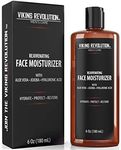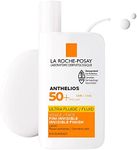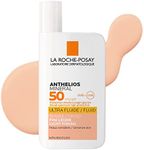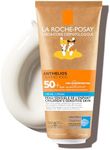Best Face Sunscreens
From leading brands and best sellers available on the web.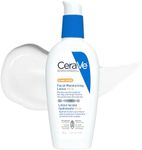
CeraVe
CeraVe Facial Moisturizer with SPF 30. Face Sunscreen Lotion with Hyaluronic Acid, Niacinamide & Ceramides for Women & Men. Oil-free, normal to dry skin. Verified Extended Use Date, Travel Size 89ML
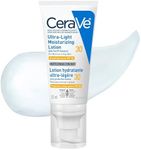
CeraVe
5%OFF
CeraVe Ultra-light Face Moisturizer with SPF 30. Hyaluronic Acid face sunscreen lotion for Men & Women, Normal to Oily & sensitive skin. Fragrance-Free, Oil-Free, Non-Comedogenic, Travel Size 52 ML
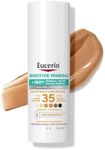
Eucerin
5%OFF
Eucerin Sun Tinted Mineral Face Sunscreen Lotion SPF 35 | Blendable Tinted Mineral Sunscreen for all skin tones with Zinc Oxide and 5 Antioxidants | Daily Sunscreen | 50 mL pump

Neutrogena
16%OFF
Neutrogena Hydro Boost Water Gel Sunscreen Lotion with Broad Spectrum SPF 50, Water-Resistant & Non-Greasy Hydrating Sunscreen Lotion, Oil-Free, 88 mL

La Roche-Posay
La Roche-Posay Anti-Shine Mattifying Face Sunscreen, Anthelios Dry Touch Anti-Shine Sunscreen Broad Spectrum SPF 60 with Silica, Vitamin E & Perlite, Oil Free, Non Greasy, Oxybenzone Free, Paraben Free, Travel Size, Dermatologist Recommended, 50ml

Cetaphil
Cetaphil Daily Facial Moisturizer, SPF 50 Gentle Face Lotion for All Skin Types, Light Weight, Oil Free, Dermatologist Recommended Sensitive Skincare, 50ml, Pack of 1

Coppertone
5%OFF
COPPERTONE Sport Sunscreen Spray SPF 30, Water-Resistant and Lightweight Face and Body Sunscreen, 4-in-1 Performance Spray Sunscreen Stays On Strong When You Sweat, UVA/UVB Sun Protection, 2 x 222 mL

CeraVe
CeraVe Skin Renewing Day Cream SPF 30 - Anti-aging Daily Moisturizing Cream with Encapsulated Retinol, Ceramides & Hyaluronic Acid, Fragrance Free

VICHY
Vichy Capital Soleil Daily Ultra Fluid Mineral Tinted & Dry Touch SPF 60, Broad Spectrum UVA-UVB Sun Protection, Non Greasy, Non-Comedogenic, Water Resistant, Fragrance Free, Dermatologist Recommended
